High on Words: Exploring the Diverse Stoner Slang of Marijuana Culture
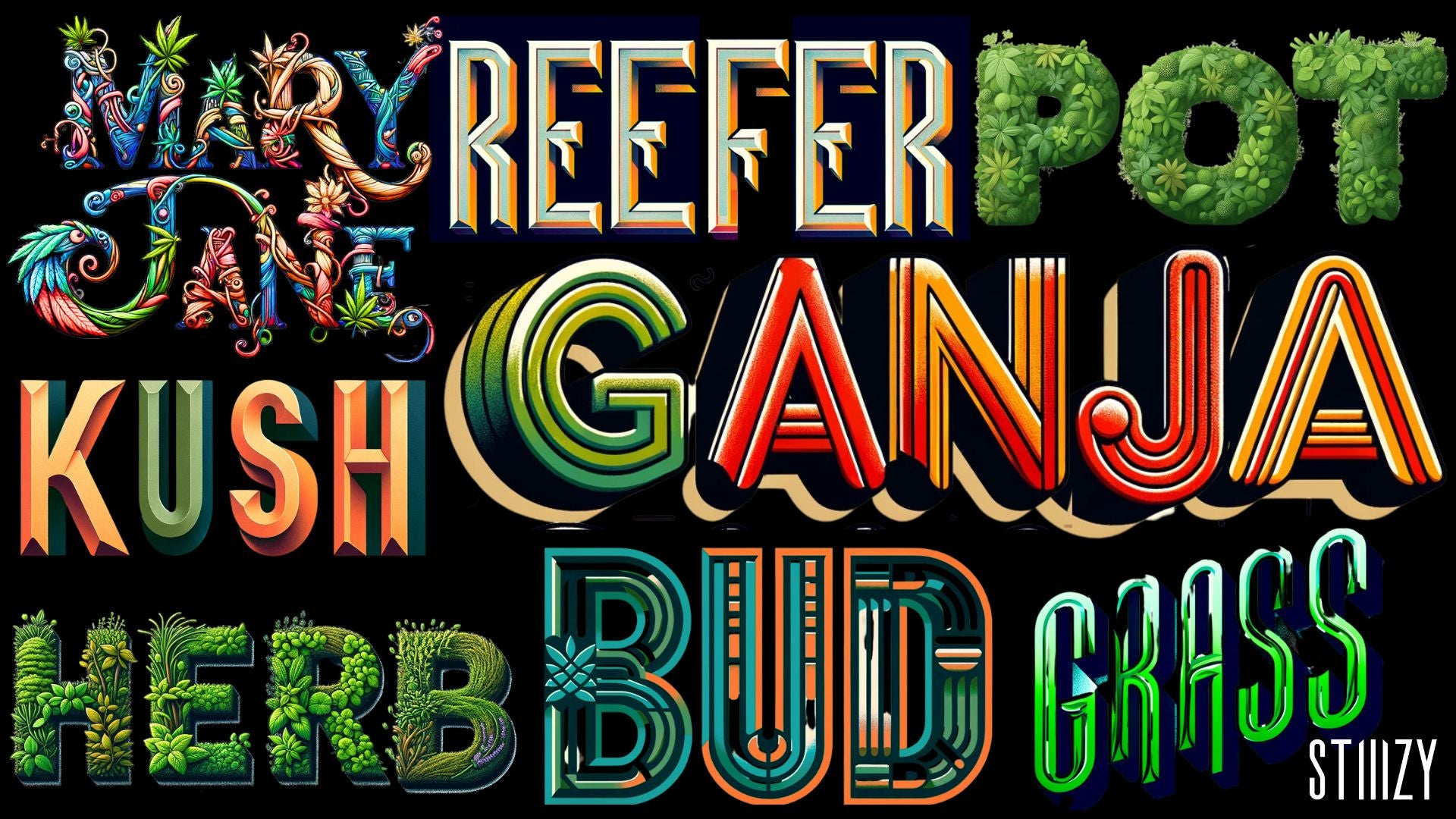
Ever find yourself lost in a conversation about cannabis because the lingo sounds like another language? You’re not alone. The world of cannabis comes with a rich, evolving vocabulary that serves as a unique cultural code. Whether you’re new to the scene or just trying to keep up, understanding this slang gives you a deeper look into the community, its history, and the way people connect over the plant.
The Origins and Cultural Significance of Cannabis Slang
From underground gatherings to mainstream conversations, cannabis-related terms have carried meaning far beyond their definitions. One of the most iconic? “420.” Popularized by a group of California high school students in the 1970s who would meet at 4:20 PM to search for a hidden cannabis crop, the number eventually became a cultural signal—today it’s shorthand for both time and date (April 20) associated with cannabis appreciation.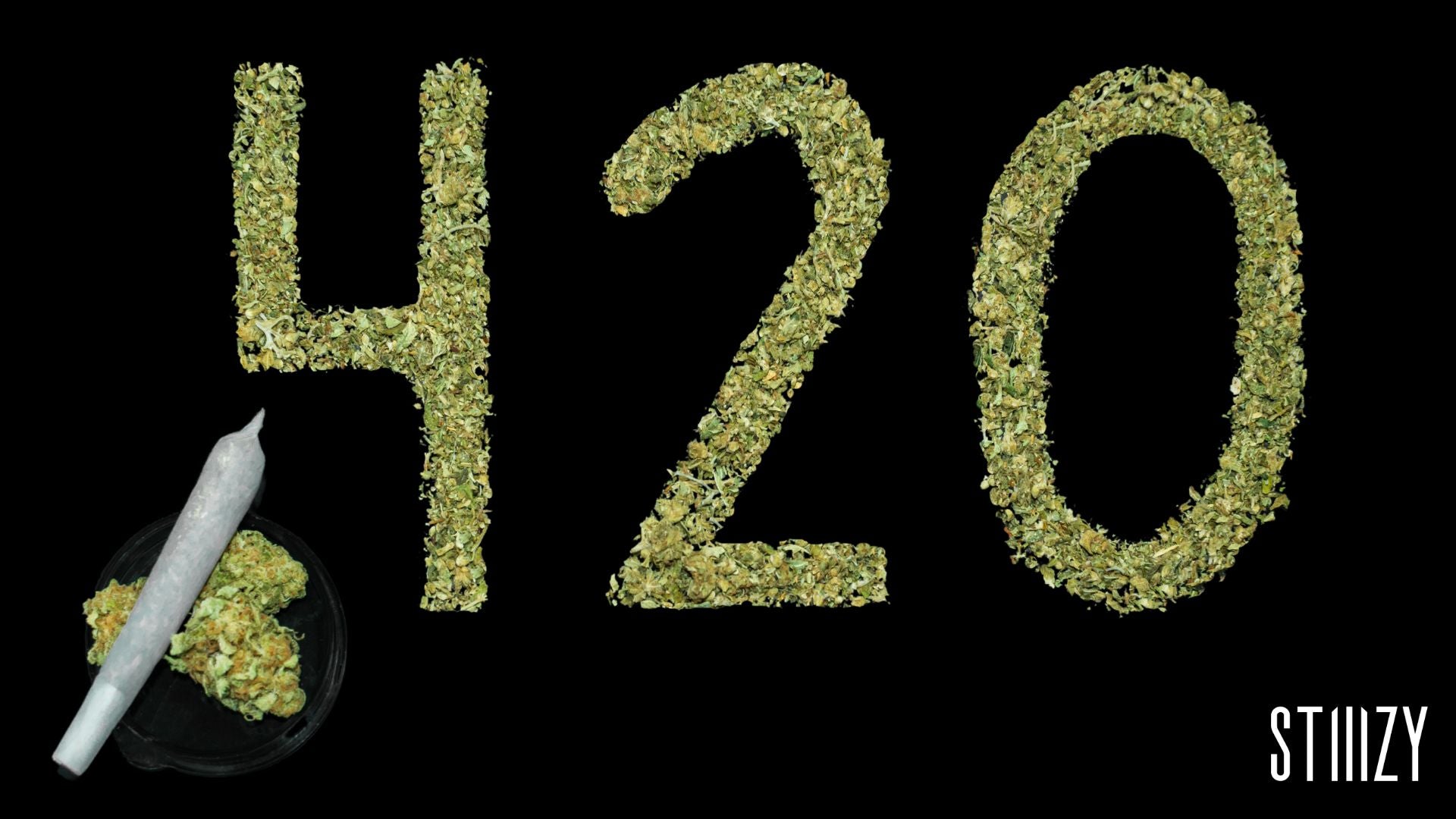
Other terms, like “jazz cabbage,” emerged from the early 20th-century jazz scene. This playful name echoed how cannabis culture intertwined with music, art, and counterculture, especially during prohibitionist eras.
Why Slang Matters in the Cannabis Community
Language has always played a key role in cannabis culture, especially during periods when public use was criminalized. Slang allowed users to communicate discreetly, creating a shared identity across different subcultures and geographies. Today, slang still serves as a form of cultural shorthand, helping to express identity, camaraderie, and tradition.
Popular Cannabis Slang Terms and Their Meaning
Here’s a breakdown of some of the most commonly used—and culturally significant—slang words in cannabis communities:
Nicknames for Cannabis Flower
- Cannabis – One of the most widely used and versatile terms.
- Pot – A longstanding classic.
- Bud – Refers to the part of the cannabis plant typically consumed.
- Ganja – Derived from Sanskrit, popularized through Caribbean and Rastafarian cultures.
- Herb – A subtle, catch-all term used globally.
- Mary Jane – A play on the phonetics of the Spanish term “marijuana.”
-
Grass, Reefer, Tree, Flower – These all reference either the plant’s appearance or smoking tradition.
Consumption Terms
- Toke, Blaze, Smoke up, Light one, Chiefing – Common ways to describe smoking or vaping cannabis.
- Spliff – A joint rolled with a mix of cannabis and tobacco (popular in European and Caribbean regions).
- Jay or J – Short for “joint.”
How Slang Changes Across Regions
Just like food or fashion, cannabis vocabulary adapts to local cultures:
- In California, you might hear “tree” or “bud.”
- In New York, it’s common to hear “loud” (referring to strong-smelling cannabis).
- In the Caribbean, “ganja” and “herb” dominate due to long-standing cultural associations.
Even within states, different age groups or subcultures might favor different terminology, from hip-hop-influenced terms like “chronic” to new-school phrases like “gas” or “fire.”
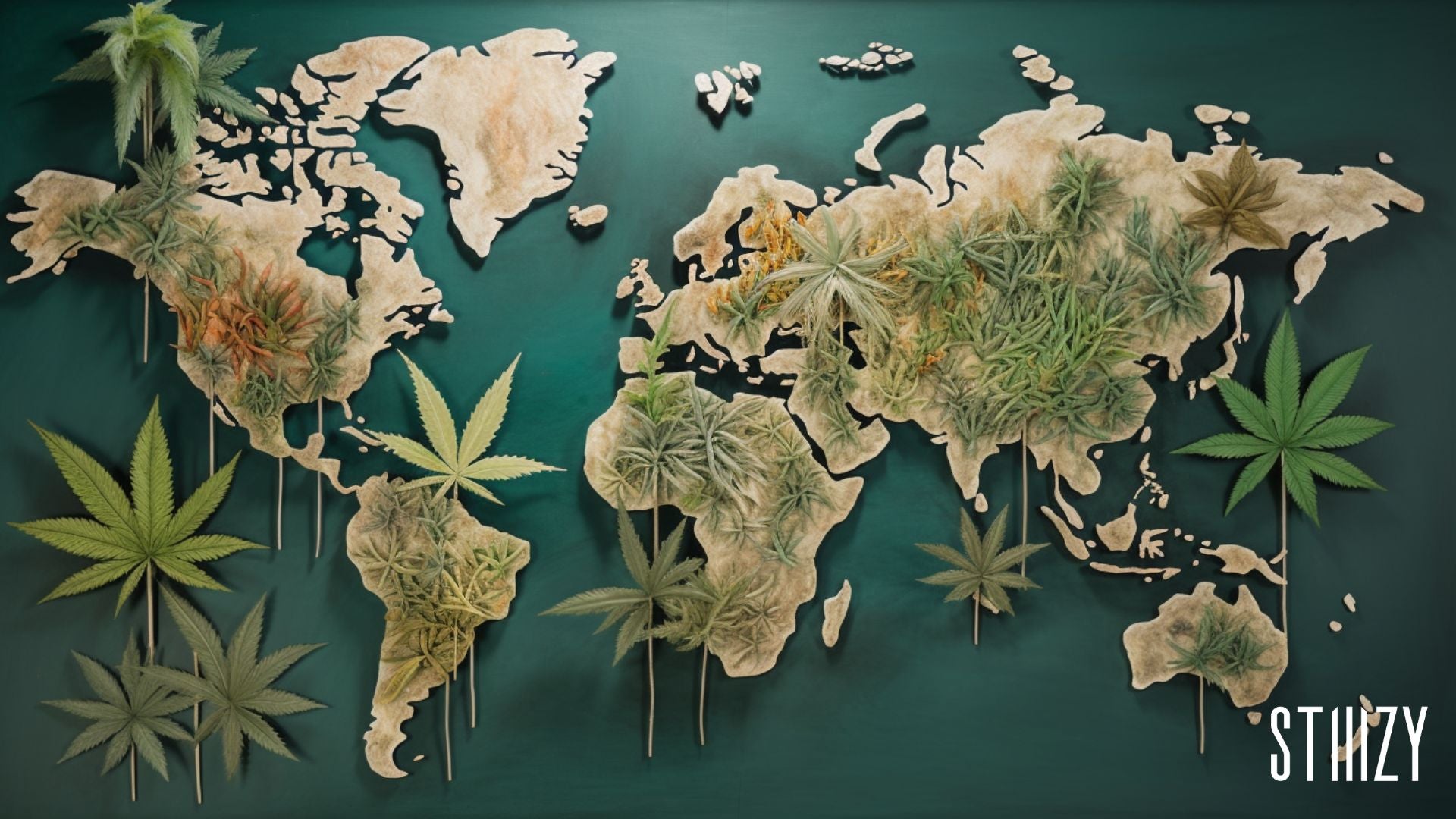
Creative & Funny Nicknames for Joints
Cannabis users have always embraced humor and creativity. Some of the most colorful names for joints include:
- Doobie – Lighthearted and classic.
- Twist, Fatty, Bone, Baseball Bat – All nicknames tied to the size or shape of the roll.
- L – Popularized in hip-hop as shorthand for “blunt” or “joint.”
- Pinner – A skinny joint.
Using these terms in casual settings can add levity and familiarity to conversations, reinforcing the social aspect of cannabis culture.
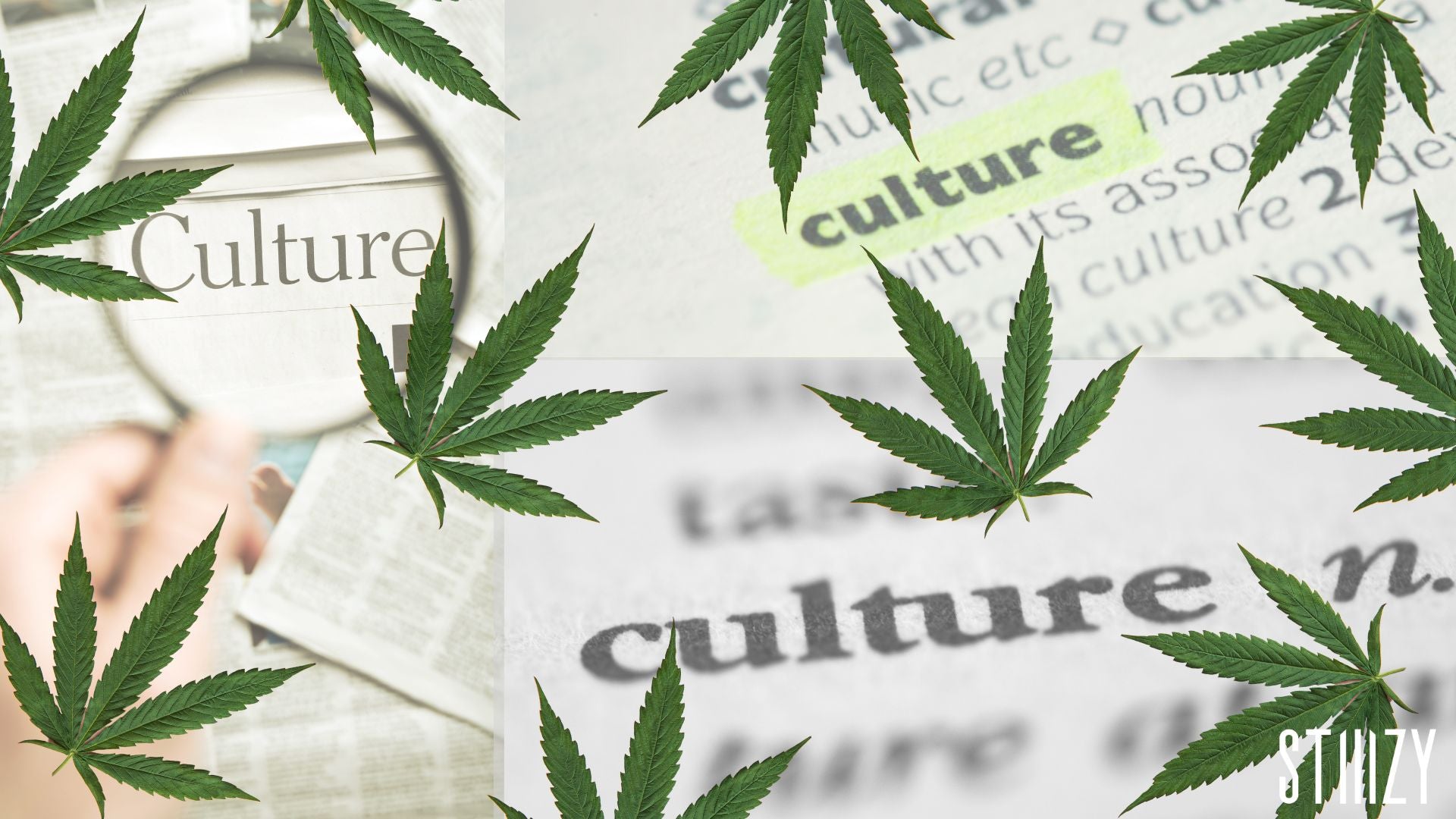
The Influence of Pop Culture on Weed Lingo
Cannabis slang isn’t just born from underground movements—it’s also shaped by pop culture. Movies and music have long influenced how people talk about weed.
Films like Pineapple Express or Half Baked helped normalize terms like “green,” “sticky icky,” or “zip” (referring to an ounce), while hip-hop continues to coin and popularize new words that quickly enter the mainstream.
Classic vs. Contemporary Slang: A Timeline Snapshot
|
Classic Terms |
Modern Slang |
|
Pot |
Gas |
|
Grass |
Loud |
|
Reefer |
Fire |
|
Mary Jane |
Zaza |
|
Dope |
Pressure |
|
Herb |
Exotic |
A Snapshot of Cannabis Terminology in Context
Let’s break down a few terms that demonstrate how cannabis culture weaves slang into daily language:
- “Sticky Icky” – Coined in the ‘90s to describe high-quality flower, often mentioned in rap.
- “Zaza” – A recent term describing premium cannabis, shorthand from “exotic.”
Language and Subcultures: Who Shapes the Slang?
Each wave of cannabis consumers contributes to the ever-growing lexicon:
- Skaters brought terms like “roll up” and “twist one.”
- Artists and musicians contributed metaphorical expressions.
-
Digital-era users created meme-driven slang that changes rapidly across platforms like Reddit and TikTok.
The beauty of this cultural vocabulary lies in its fluidity. What’s trendy today might be replaced by something completely new in a few months.
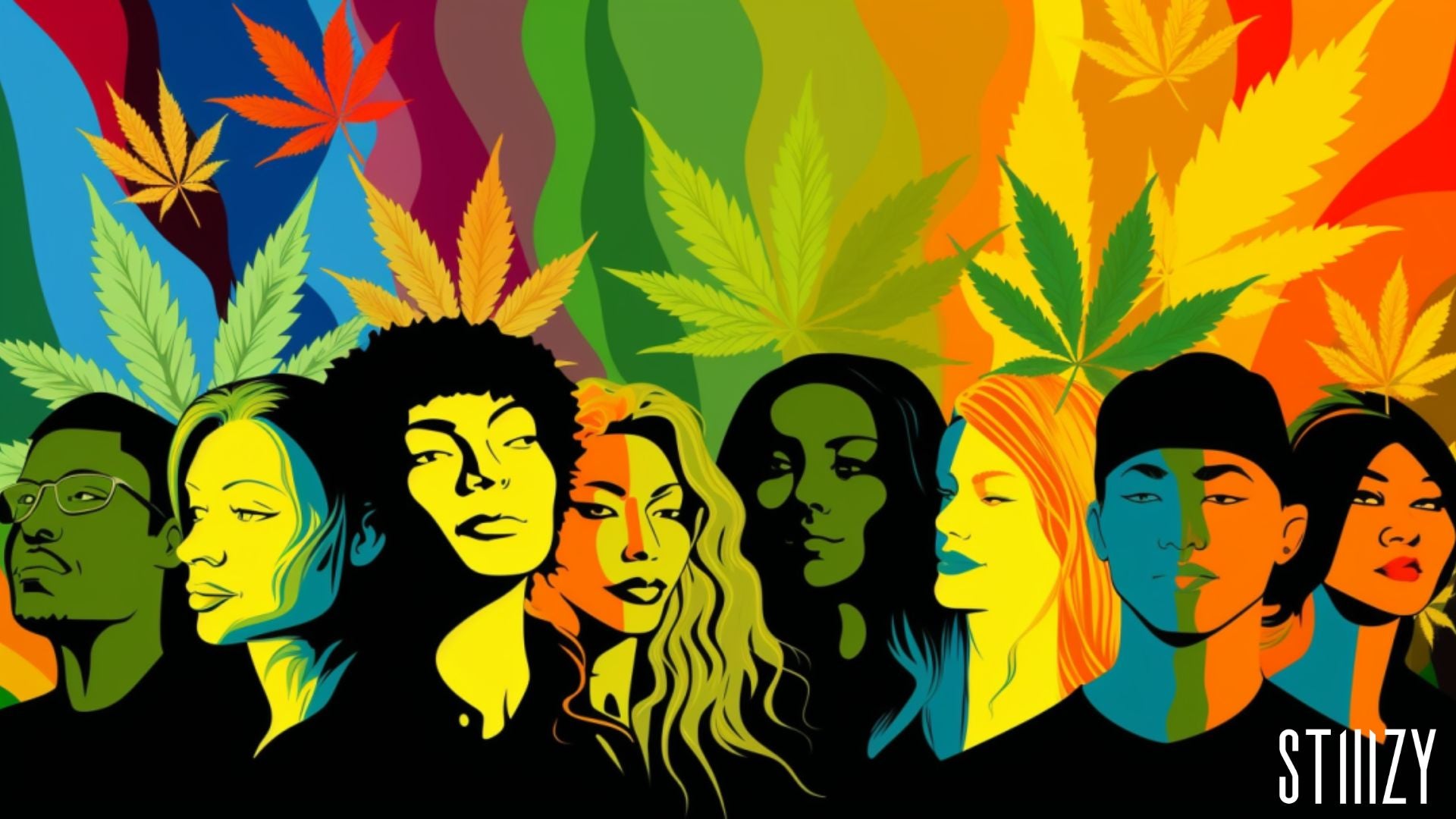
Understanding Slang Responsibly
While learning cannabis lingo is fun and culturally enriching, it’s also important to stay aware of the context. Slang used in casual social settings may not be appropriate in legal, medical, or retail environments. For example, formal conversations about cannabis in dispensaries or with regulators require accurate, legal terminology.
FAQs
Some of the most recognized include weed, pot, ganja, bud, herb, and flower. Regional preferences and cultural shifts continue to influence new terms.
Slang helps build a sense of community and shared identity. It reflects how cannabis culture has evolved and adapted through generations, especially during times when public discussion was limited.
Yes, regional slang can vary widely. California might use “tree,” while the East Coast favors “loud” or “gas.” Caribbean cultures use “ganja” or “herb.”
Absolutely. As cannabis culture continues to grow, some terms fall out of favor while others rise with new cultural movements or pop culture references.
It depends on the setting. In informal spaces or community events, slang is part of the culture. In legal or retail settings, stick to formal terminology.
STIIIZY complies with all applicable state laws regarding the sale and marketing of cannabis products. This content is intended for adults 21+ in jurisdictions where cannabis use is legal under state law. By engaging with this material, you acknowledge that you are of legal age in your jurisdiction.
This content is for informational and educational purposes only. It is not intended to diagnose, treat, cure, or prevent any disease or medical condition. STIIIZY makes no health claims about cannabis products. Consult a licensed healthcare professional before using cannabis, especially if you are pregnant, nursing, or have a medical condition.
Cannabis products may affect individuals differently. Consume responsibly and avoid operating vehicles or machinery after use. STIIIZY disclaims all liability for any adverse effects, legal consequences, or misuse resulting from the use of our products or reliance on this content.
Cannabis laws vary by state and locality. This content does not constitute legal advice. Users are responsible for understanding and complying with their local regulations.
Statements about product effects or benefits are based on general industry knowledge and user experiences. Individual results may vary. STIIIZY does not guarantee specific outcomes.
References to third-party studies, testimonials, or external resources are provided for context only. STIIIZY does not endorse or validate these materials unless explicitly stated.
The views and opinions expressed in this blog are those of the author and do not necessarily reflect the official policy or position of STIIIZY.

